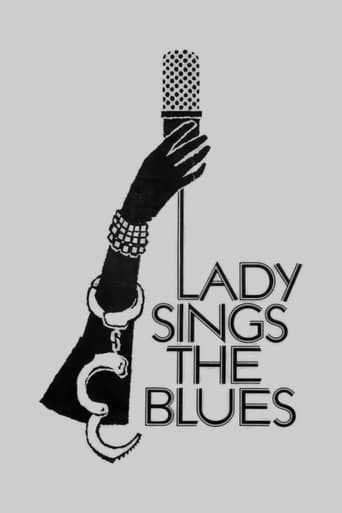


Lady Sings the Blues
Chronicles the rise and fall of legendary blues singer Billie Holiday. Her late childhood, stint as a prostitute, early tours, marriages and drug addiction are featured.
-
- Cast:
- Diana Ross , Billy Dee Williams , Richard Pryor , James T. Callahan , Paul Hampton , Sid Melton , Virginia Capers


Similar titles
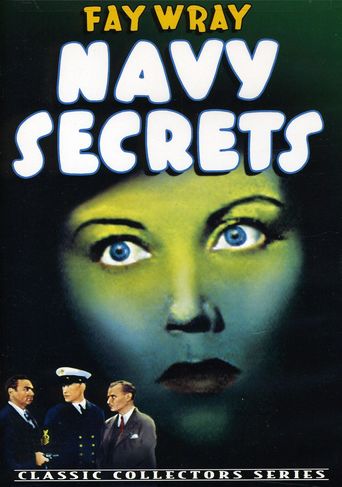
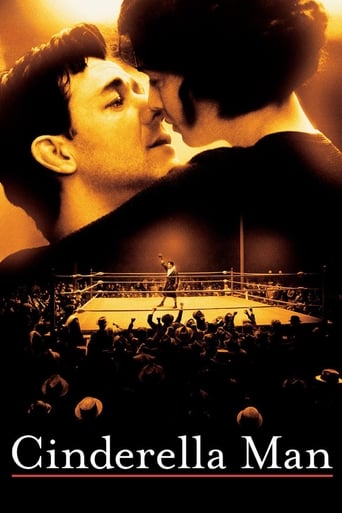
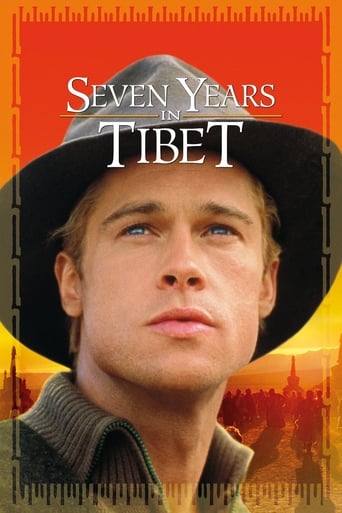


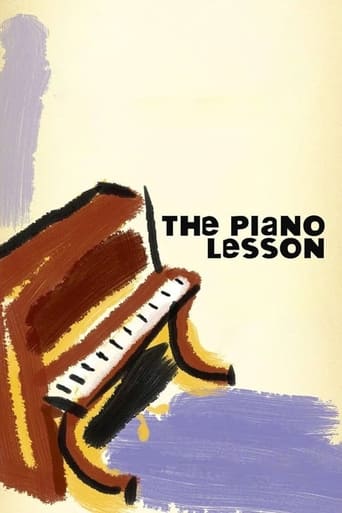

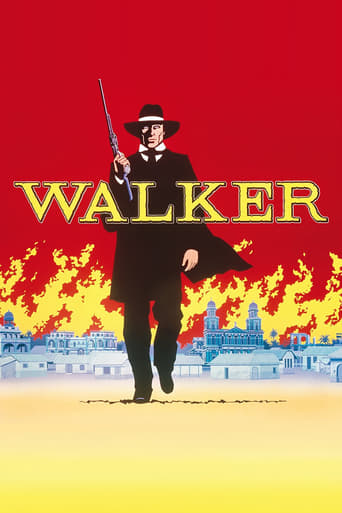
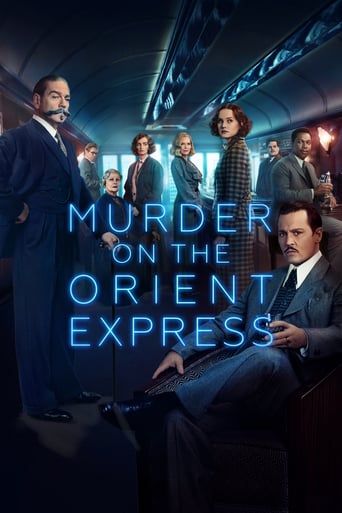
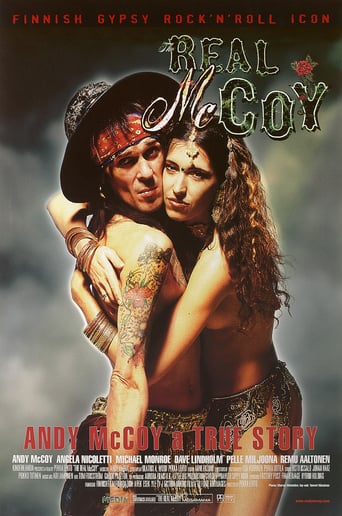
Reviews
Such a frustrating disappointment
Don't Believe the Hype
If the ambition is to provide two hours of instantly forgettable, popcorn-munching escapism, it succeeds.
A terrific literary drama and character piece that shows how the process of creating art can be seen differently by those doing it and those looking at it from the outside.
By the time she died of a heroin overdose at the age of 44 on July 17, 1959, Billie Holiday (real name: Eleanora Fagan Gough, a.k.a., "Lady Day") was already a show business legend: a singer of great talent and emotional power also notorious for a tragic, tortured personal life. Death transformed the legend into romantic myth and, sooner or later, a cinematic biopic was inevitable. Unfortunately, the biopic that did emerge thirteen years after Lady Day's demise proved to be a bad, bombastic film. Much that is wrong with 'Lady Sings the Blues' can be traced to Motown Records mogul Berry Gordy's heavy-handed involvement (including total financing to the tune of $3.5 million). His screen writing team—Chris Clark, Suzanne de Passe, and Terence McCloy—were all Gordy cronies but none of them had written a screenplay before. Also highly suspect was the film's primary source material: Billie Holiday's alleged autobiography, co-authored with hack writer William F. Dufty: 'Lady Sings the Blues' (Doubleday, 1956). Holiday's own account of her life was filled with fabrications that the screenwriters blithely took at face value. No matter; the intent of the movie all along was not to serve historical accuracy but to function as the ultimate prestige star vehicle for Gordy's protégé Diana Ross, former Supremes lead singer, who had just embarked on a solo recording and film career and demanded that Gordy give her the juicy part of Lady Day. The fact that Ross had very little acting experience and did not look or sound anything like Billie Holiday, prompted critics to wonder aloud if she could carry the film. Surprisingly, she could, and did—after a fashion. Purely as melodrama, 'Lady' is a powerful experience. Though graced by numerous artistic triumphs, Billie Holiday's life was, without question, a nightmare roller coaster of drug addiction and withdrawal, police troubles, racial victimization, and unending bouts of sexual and emotional abuse by the men in her life, both intimates and strangers. In its clumsy, single-minded zeal to capture all the suffering and angst, the film goes too far. When all is said and done Diana Ross's Billie Holiday is the consummate victim-martyr and little else. Indeed, her spiritual and emotional pain is so constant, loud, intense, and insistent that the viewer drifts from stunned empathy, to pity, to compassion fatigue, to something akin to post-traumatic stress disorder. Striving with great earnestness for tragedy, 'Lady Sings the Blues' is finally nothing more than a protracted exercise in hysterical bathos. At first blush, the film was considered a great one in some quarters. Critics were politely wary but the public ate it up and the Motion Picture Academy—always attuned to popular sentiment—bestowed five 1973 Oscar nominations. The soundtrack album was a big hit as well. After 'Lady' failed to win any Oscars, it became apparent that the initial response had been overblown, much like the movie itself. Billy Dee Williams plays Holiday's husband, Louis McKay, and legendary comic Richard Pryer does a fine turn as Holiday's pianist but the show belongs almost entirely to Ross. VHS (1996) and DVD (2005).
I can remember watching this movie multiple times with my father. As a young black girl I got it!!! I've read opinions that criticize the fact that the movie didn't focus on the music or the other artist of the time. The point is. . .get ready. It was an autobiographical account of Billie's life.I can remember seeing the movie and actually being moved to go to the library to check out a book to find out who this lady really was. I think Diana did a damn good job putting her artistic touch to portraying Billie's life, her struggles, vices, love and yes, her music. The fact is, is that the movie wasn't about Billie's making of jazz as it was about the struggles of a young black woman with a passion for singing moved by segregation and Jim crow and having to constantly adjust and reinvent herself to cope in a society that loved and hated her all at the same time.Heavy. I'm not partial to Diana Ross one way or another. But the lady's got skills. And if the emotion she put into playing this role wasn't enough to tug at your heartstrings, then you ain't human.Some say the film lacked non continuity. Such is life. I get it. We were made to reflect on where she had been in order to know how she got to be who she was. This movie while of course jazz inspired and musical, was a deeper reflection into the cracks and fissures that shaped a life. Billie Holiday.I thank my father for his love of good movies and for sharing movies like, "Lady Sings the Blues" with me.I'm out! Peace.
LADY SINGS THE BLUES was the heavily fictionalized film biography of legendary cabaret chanteuse Billie Holliday, who rose to great stardom as one of the great blues impressionists of our time but, sadly, was never able to complete escape the multiple demons which haunted her for her entire life. Diana Ross made an impressive film debut in the role of Lady Day, which garnered her an Oscar nomination. Though her opening scenes playing Billie as a teenager are silly and unconvincing, Ross delivers a riveting performance for the most part, guided by her Svengali Berry Gordy, who makes a brief cameo appearance as a drug dealer. Billy Dee Williams officially became a star with his charismatic turn as Louis McKay, Billie's true love and Richard Pryor also received an Oscar nomination for his funny and caustic performance as "Piano Man", Billie's best friend and piano player, who was chasing demons of his own. The film is lavishly mounted with Ross draped in some stunning costumes that definitely merited Oscar attention. Ross gets plenty of opportunities to sing and though she really doesn't sound anything like Holliday did, she does capture the spirit of this tragic songbird. It's not a great guide as far as providing facts about Holliday's life. It seems to gloss over Holliday's alleged early days as a prostitute and her drug abuse, but it's a grand example of storytelling on screen with a riveting leading character who will capture your heart.
The recent death of Richard Pryor prompted me to look at the 2005 DVD package of 1972's "Lady Sings the Blues", which proves the then-young comedian to be a fine actor in the meaty supporting role of Piano Man. Even though he was a master stand-up comic, it's still too bad he never pursued roles of a similar dramatic caliber since he obviously had the talent. Similarly, Diana Ross never fulfilled the promise of her big screen debut in the title role as legendary jazz singer Billie Holiday (1915-59).Bearing no physical and little vocal resemblance to Holiday, Ross somehow gets under her true-life character's skin much like Joaquin Phoenix does in "Walk the Line" or Jamie Foxx in "Ray". Thirty-three years have elapsed since I first saw this movie, and it is with a certain amount of regret that I report that Ross as an actress has not been anywhere near this good since then. Granted she only has three features under her belt, 1975's "Mahogany" reflected an ego run amok, and she was disturbingly miscast in 1978's "The Wiz". From the opening scene where she is suffering through heroin withdrawal in raw, harrowing detail to her sultrier nightclub performances, she manages to be incendiary by her sheer will. She is even convincing in the early scenes where she is barely a teenager. Her vocal performances really don't evoke Holiday's earthier style, though to Ross's credit, her vivid renditions of standards such as "Mean to Me", "Fine and Mellow" and "Gimme a Pigfoot (and a Bottle of Beer)" don't sound like Supremes redux either.This achievement is all the more impressive since director Sidney J. Furie, a journeyman filmmaker at best, has surrounded Ross with an unwieldy rags-to-riches biopic that should have been edited down from its 144-minute running time. The screenplay - credited to Chris Clark, Suzanne De Passe and Terence McCloy (none of whom wrote a movie script before or since) based in part on Holiday's autobiography - plays fast and loose with the facts and piles on the clichés in true Oscar-baiting fashion. The drug-related scenes are powerful, though they eventually start to feel like condescending plot devices to make the viewer sympathize with Holiday for the persecution she experienced at the hands of abusive men and a bigoted society. Moreover, as Furie discloses on the accompanying audio commentary, the dialogue for several scenes is improvised by the actors, for example, the unnecessarily lengthy Club Manhattan sequence, where the lack of discipline becomes wearing.Contrary to the fact that Holiday's true life story has been well documented and interest in her legacy increased, the filmmakers altered events and people in order to maintain interest from what they thought were mainstream audiences at the time. Consequently, the character of Louis McKay, Holiday's love interest and eventual husband, played with toothsome charm by Billy Dee Williams, synthesizes a lot of men who came into her life and helped shape her career. The dramatized results leave out key figures of the jazz world like saxophonist Lester Young, trombonist Jimmy Monroe to whom Holiday was married, and record producer John Hammond, as well as Benny Goodman, Count Basie, Artie Shaw and Teddy Wilson--all important colleagues and mentors during the period covered in the film. Instead, we are given Holiday's story as filtered through Ross's own story, an observation confirmed by Ross herself on the accompanying 2005 making-of featurette.When the music is true to the period, it's quite wonderful, but composer Michel Legrand composed some gauzy, anachronistic interludes that sound like symphonic outtakes from his work on "Brian's Song". The costumes also have a Vegas revue feel, no surprise since designer Bob Mackie's flamboyant, early 1970's style is on full display here. For such an overlong movie, the ending feels quite truncated as newspaper clips are used to telegraph her eventual fate as Ross triumphantly sings her signature song, "God Bless the Child", in Carnegie Hall. Credit Motown mogul and Ross's Svengali, Berry Gordy, for having the fortitude, foresight and tenacity to oversee the project, and the DVD hammers that point in not only the overemphatic, only partially insightful commentary by Furie, Gordy and artists' manager Shelly Berger but also the making-of featurette which features Ross looking strangely youthful and Williams at least looking his age. There are several deleted scenes included in the DVD with no additional commentary from Furie, none refurbished and all understandably excised from the final cut.
